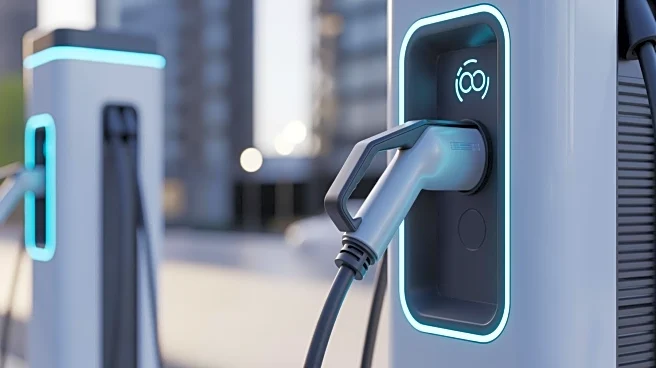What's Happening?
BYD, a leading electric vehicle manufacturer, has introduced its new 'flash charging' technology, which promises to significantly reduce charging times for electric vehicles. The technology is based on a 1,000-volt architecture and features advanced Blade
batteries capable of a 10C charging rate. This allows vehicles to add 400 km of range in just five minutes. BYD plans to deploy this technology across Europe and South Africa, with hundreds of charging stations expected by 2026. The company aims to alleviate charging anxiety among EV users by making charging times comparable to refueling traditional vehicles. The flash chargers will be powered by a combination of grid electricity and solar energy, enabling infrastructure development even in areas with limited grid capacity.
Why It's Important?
The introduction of BYD's flash charging technology represents a significant advancement in the electric vehicle industry. By drastically reducing charging times, this technology addresses one of the main barriers to widespread EV adoption: range anxiety. Faster charging capabilities could accelerate the transition to electric vehicles, reducing reliance on fossil fuels and contributing to environmental sustainability. The deployment of this technology in Europe and South Africa also highlights the global expansion of EV infrastructure, potentially influencing market dynamics and competitive strategies among automakers. As more consumers consider EVs, the demand for efficient charging solutions is likely to grow, driving further innovation in the sector.
What's Next?
BYD's expansion of flash charging stations is expected to continue, with plans to cover major highways and urban centers. The company's focus on integrating solar energy into its charging infrastructure could set a precedent for sustainable energy solutions in the EV market. As other manufacturers develop similar technologies, the industry may see increased competition and collaboration to enhance charging networks. Policymakers and regulators will need to address the implications of rapid EV adoption, including grid capacity and energy distribution. The success of BYD's technology could influence future investments in renewable energy and electric mobility.
















